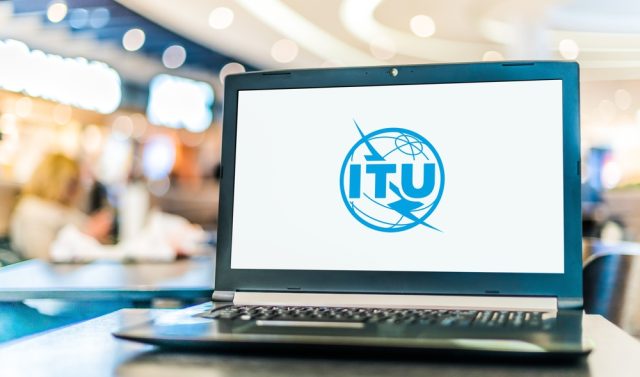
Europe wins the position of Deputy Secretary General of the ITU, International Telecommunication Union, the specialised agency for information and communication technologies of the United Nations. He is the Lithuanian Tomas Lamanauskas, a diplomat already in charge of the Corporate Strategy Division, who will be the deputy to the American Doreen Bogdan-Martin, elected as Secretary General and the first woman at the top of this agency with over a century of history.
The competition for the ITU leadership took place in a contest worthy of the Cold War period. Just as in the 1970s, in the longest chess game in history, the one played between Bobby Fischer and Boris Spassky, Bogdan Martin, former US Director of the Telecommunication Bureau, challenged the Russian Rashid Ismailov, former Minister of Telecommunications and former Vice-President of Huawei, and won.
Apparently, the two candidates’ agendas set the same goals, namely to connect all the world’s people to the Internet and mobile phones by 2030. However, strategies and vision for the future appeared very different from the beginning.
Indeed, the election of the new Secretary General puts a brake on the numerous attempts, perpetrated over the years by Russia, China, Saudi Arabia and other countries where the compression of democracy is systematic, to change the international regulation of telecommunications.
On the table were the rules of the Internet, with the world (there were about 190 countries involved in the voting) called upon once again to side with America and the West, or to choose Moscow, Beijing and those States that oppose the vision of a free Web, accessible and open to all without censorship.
The losing side wanted national governments to decide what should or should not appear on the web.
The newly elected Lamanauskas, whose mandate, like Bogdan-Martin’s, will last four years, won the support of 105 countries (the results are available here). His opponents were Korean official Chaesub Lee and Gisa Purcell of Samoa, who took home a slim haul of 59 and 12 votes respectively.
Lamanauskas pledged to promote broad partnerships for connectivity; increase ITU and industry ambitions on Net Zero emissions and climate sustainability. The European official also announced that he would integrate results-based management into all ITU processes.
Romania was the venue for this vote, which was very important both from the point of view of international balances and the affirmation of a world view under the banner of freedom of expression.
Bucharest hosted the Plenipotentiary Conference, which saw the final round completed in a single round.
For the European Union, this is a prestigious achievement, which increases its international weight in a subject, global Internet governance, which is strategic in the protection of democracy, freedom and rights. The entirety of the 27 EU Member States cast their votes in support of the Lithuanian candidate, contributing decisively to the victory.
The US-EU leadership of the ITU will have to reckon with the increasingly insidious aims of China, which also thanks to the internet has been able to set up its disturbing system of ‘social credit’, a subtle means of coercing Chinese citizens based on new networked technologies.
The International Telecommunication Union, an organisation founded on 17 May 1865 in Paris by 20 members under the name International Telegraph Union, is today based in Geneva, Switzerland. For around 150 years, it has been responsible for regulating the worldwide allocation of radio frequencies, managing the global harmonisation and development of information transmission, from the telegraph to satellites and on to the internet, symbol of the new forms of communication and data exchange of globalisation. An international agency, very old, but one that has continuously rethought itself, developing new areas of monitoring and regulatory intervention.
In the hyper-connected world, the new challenges for the defence of democracy and Western values also pass through this important body.



 Subscribe
Subscribe